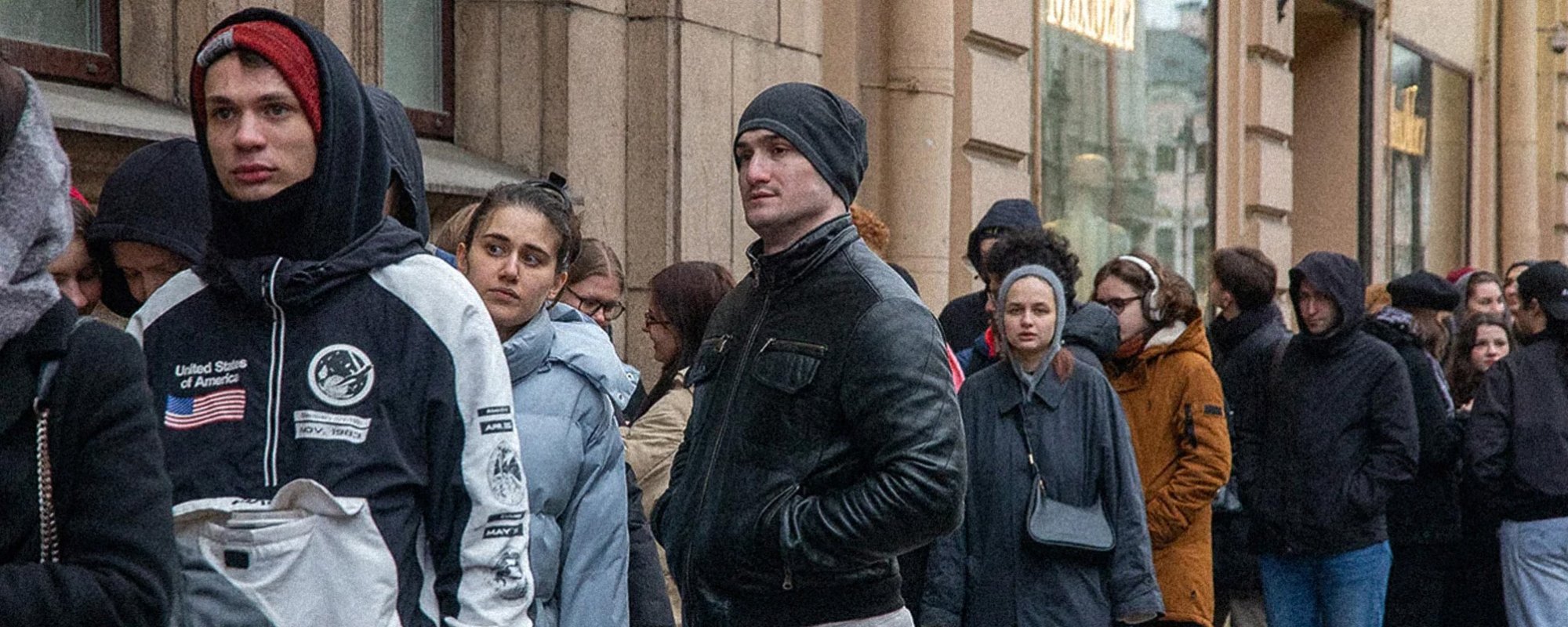This article originally appeared in The Spectator on Mar. 19, 2024
On Sunday, the final day of voting in Russia’s presidential election, Russians came out in an unorthodox protest against the Kremlin. At midday, they showed up at polling stations within the country and at embassies across the globe to take part in the ‘Noon Against Putin’ movement.
The strategy, assembled piece by piece by the motley Russian opposition, was simple. Come to your local polling station at noon local time on 17 May. Vote against Putin, for any other candidate you like, or simply spoil your ballot paper.
Some opposition figures spent the weeks before the election bickering over the details: which specific candidate people should vote for, how they should choose. Anti-war leftists decided to call for people to spoil their ballots by writing ‘For a just world’ on them. Navalny’s team even rolled out a somewhat redundant app that would determine a candidate randomly. But everyone agreed on the most important parts: if possible, Russians should come at noon on the 17th, and vote against Putin.
Before 17 March, opinion leaders in Russia and elsewhere were sceptical of the protest movement. To some it seemed pointless, as the Kremlin would still draw whatever percentage it wanted to claim victory. Some even said it was downright harmful, legitimising the Kremlin’s fake elections.
But the midday protests served several important functions. In a country where almost all dissent is drastically punished — even putting anti-war stickers on products in a supermarket can land you in jail for seven years — the protest vote was an inherently courageous act to carry out. The Kremlin has no respect for privacy or voters’ rights. The authorities detained and harassed election monitors, as well as ordinary voters — in particular those who wrote anti-war messages on their ballot paper. In Odintsovo, a small town near Moscow, police circled the ballot box inside the polling station, checking the votes and seizing the ones they didn’t like.
Omnipresent surveillance and overwhelming brute force form key pillars in the strategy the Kremlin uses when dealing with the opposition. Therefore, in any act of protest, the opposition needs to maintain safety as its top priority.
‘Noon Against Putin’ was an act of covert protest — the kind of protest the Russian authorities begrudgingly have to accept, just as they accepted the massive crowds of thousands queuing to pay their respects at Alexei Navalny’s funeral several weeks ago. The authorities took Sunday’s protest seriously: they would not have been so busy intimidating protest voters if they didn’t. But they had to hold back as ruining the harmonious picture of election day with widespread public crackdowns isn’t such a good look — even for a dictatorship.
There are concerns that the ‘Noon against Putin’ vote was essentially useless as it put no dent in the support Putin claimed he had won. But the Kremlin, as well as those western intellectuals observing events in Russia over the past few days, would be inherently wrong to assume that the protest was performative.
The genius of the Noon against Putin protest was that it prompted dissenters to go outside and meet each other. This tactic is not unique: grassroots protest organisers around the world encourage these sorts of on-the-ground connections. Participating in such acts of protest makes individuals more assured and allows them to form networks with like-minded people. In short, they deliver hope. There is nothing quite like it for galvanising real, tangible grassroots politics as meeting like-minded people in person.
The people queuing to vote at midday and taking part in demonstrations were coming together in solidarity, and protesting. In Tbilisi, Vladimir Kotlyarov of the renowned punk band Pornofilmy, famous for their anti-Putin stance, performed their song ‘This Will Pass’. Lately, the song has become an anthem for the Russian opposition:
With a wet bag over her head,
With traces of electrocution on her hands,
My Russia is locked up in prison,
But believe me,
This will pass
These lyrics are important for understanding the mood of Russian civil society as it enters Putin’s new term in office. Many in the west seem tired of the Kremlin’s repression, and its most recent chief outcome, the war in Ukraine. They want things to be resolved faster, for Molotov cocktails to fly and for the Kremlin towers to fall in the same way that Mordor’s Barad-dur tower falls at the end of The Lord of the Rings. But the Kremlin lives in the real world, and so its opposition must as well.
The Kremlin has restructured its economic and military approach to embark on a long war. Its strategy, since Putin’s ascent to power over 20 years ago, has been slow and meticulous. Civil society knows this: it understands that it has to play an excruciatingly long game. It has no exorbitant financial resources or arsenal. The Kremlin has all this, in many cases willingly supplied by the west. All that the opposition has to sustain it in the long term is hope. As Kotlyarov’s song goes:
What a dark century we had dealt to us
But I see far away
A living hope’s forgotten light
So believe me
It will surely pass
The trajectory the Kremlin is plotting suggests that dark things lie ahead for Russia: more war, more repression. Putin signified as much at his press conference yesterday, when he talked of treating ‘traitors’ as combatants of war and essentially implying extrajudicial executions of regime critics. All that the opposition can do now is leverage their hope and play the long game.
Dan Storyev, editor at OVD-Info



